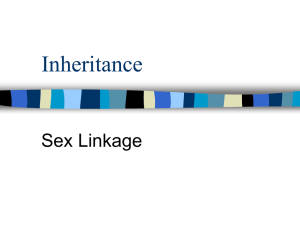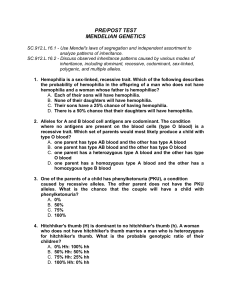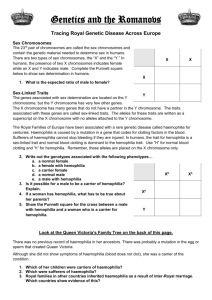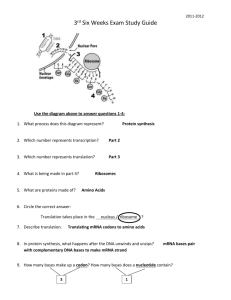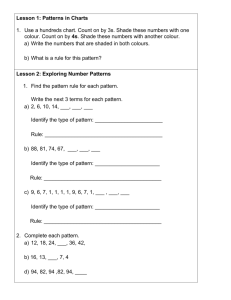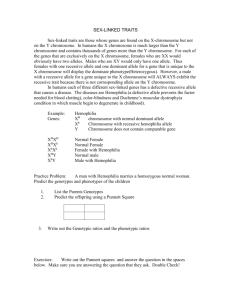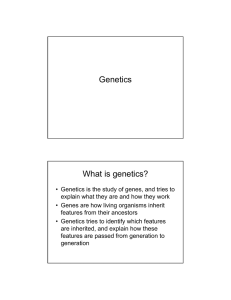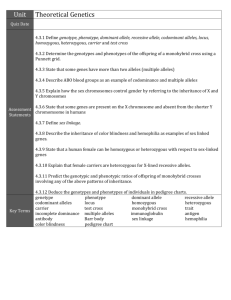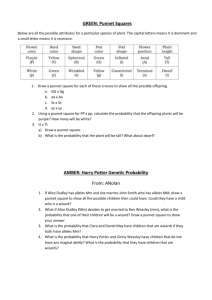Sex linkage
advertisement
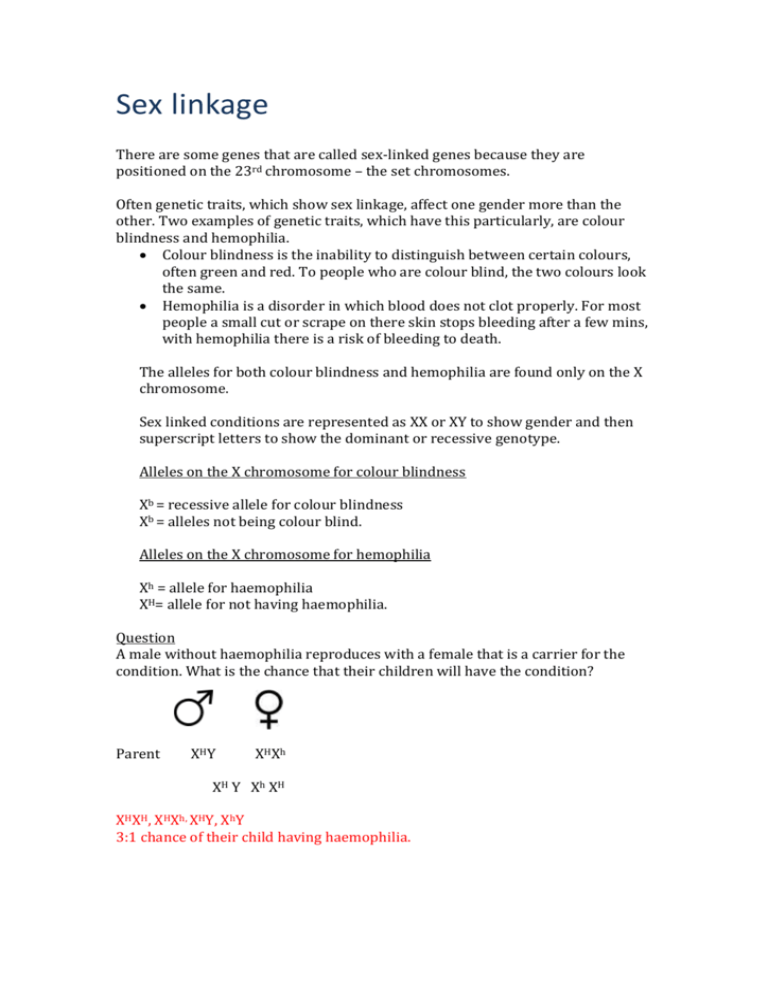
Sex linkage There are some genes that are called sex-linked genes because they are positioned on the 23rd chromosome – the set chromosomes. Often genetic traits, which show sex linkage, affect one gender more than the other. Two examples of genetic traits, which have this particularly, are colour blindness and hemophilia. Colour blindness is the inability to distinguish between certain colours, often green and red. To people who are colour blind, the two colours look the same. Hemophilia is a disorder in which blood does not clot properly. For most people a small cut or scrape on there skin stops bleeding after a few mins, with hemophilia there is a risk of bleeding to death. The alleles for both colour blindness and hemophilia are found only on the X chromosome. Sex linked conditions are represented as XX or XY to show gender and then superscript letters to show the dominant or recessive genotype. Alleles on the X chromosome for colour blindness Xb = recessive allele for colour blindness Xb = alleles not being colour blind. Alleles on the X chromosome for hemophilia Xh = allele for haemophilia XH= allele for not having haemophilia. Question A male without haemophilia reproduces with a female that is a carrier for the condition. What is the chance that their children will have the condition? Parent XHY XHXh XH Y Xh XH XHXH, XHXh, XHY, XhY 3:1 chance of their child having haemophilia.
